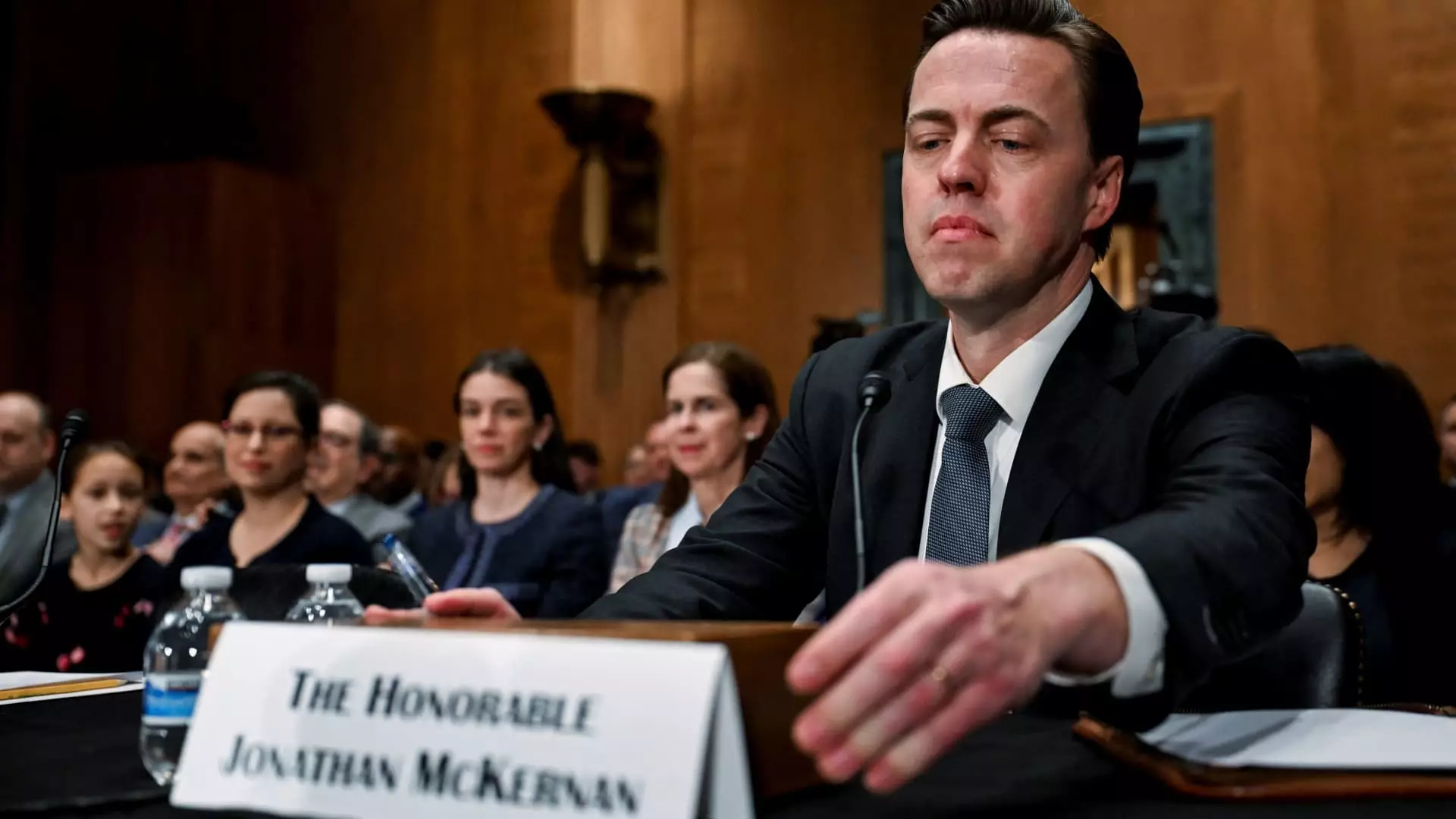The nomination of Jonathan McKernan to lead the Consumer Financial Protection Bureau (CFPB) has ignited significant debate in Congress, particularly in light of his contentious relationship with the agency’s past leadership and ongoing administrative changes under President Donald Trump. This article strives to analyze the implications of McKernan’s potential leadership in the context of consumer protection and regulatory oversight.
Established in response to the 2008 financial crisis, the CFPB was designed to protect consumers from unfair, deceptive, or abusive practices in the financial services sector. Under previous administrations, especially during the Obama era, the CFPB was lauded for its aggressive stance against predatory lending and robust advocacy for consumer rights. However, the changing political climate has led to a growing skepticism about the Bureau’s future, given the current administration’s priorities, and McKernan’s confirmation hearing was indicative of this uncertainty.
At his confirmation hearing, McKernan faced tough questions from Democratic senators, including Elizabeth Warren, a notable advocate for the CFPB’s original mission. Senators pressed him on his commitment to uphold the statutory requirements of the Bureau, hoping to ascertain whether he would continue the agency’s role in safeguarding consumer interests or pivot towards a more truncated model. McKernan’s statement that he would enforce laws “fully and faithfully” seemed to echo a desire to reassure both legislators and the public of his commitment to the agency’s foundational goals.
Yet, McKernan’s critical statements regarding his predecessor, Rohit Chopra, and the view that the CFPB “acted in a politicized manner,” raised alarms. Critics fear that such rhetoric might signal a retreat from aggressive consumer advocacy—a retreat potentially orchestrated by an administration that views the Bureau as an unnecessary regulatory burden.
Recent drastic measures taken under acting director Russell Vought—such as the closure of the CFPB’s Washington headquarters and significant staff layoffs—have led to serious concerns regarding the agency’s efficacy. The swift dismissal of several enforcement actions against major corporations suggests that the CFPB might be abandoning its core mission of consumer protection in favor of aligning with broader administration goals. The alarming prospect that more than 95% of the agency’s staff could be terminated adds to fears regarding the CFPB’s potential extinction.
Furthermore, Warren’s remarks drawing parallels between McKernan’s nomination and being “the No. 1 horse at the glue factory” portrayed a grim outlook for the bureau’s future leadership. It cast doubt on whether McKernan could realistically fulfill his commitment to uphold its statutory requirements amidst overwhelming administrative opposition.
In his defense, McKernan spoke of the need to “right-size” the CFPB and ensure its actions remain within legal parameters. This phrase suggests that he envisions a restructured CFPB that prioritizes fiscal responsibility while still aiming to serve its essential function. However, the interpretation of “right-sizing” remains contentious, as many interpret it to mean reducing the agency’s capacity to effectively monitor and regulate financial institutions.
His emphasis on accountability indicates that McKernan may pursue a more restrained, yet legally compliant, approach. Whether this will translate into genuine consumer protection or merely a façade for reduced enforcement remains to be seen.
As the confirmation process unfolds, the broader implications of McKernan’s leadership will undoubtedly resonate beyond Washington. With consumer protection at stake, lawmakers and the public alike must remain vigilant. The CFPB’s trajectory under McKernan could either reinforce the agency’s pivotal role in consumer advocacy or diminish it substantially—a reality that will depend on the drive and support he receives in a significantly turbulent political environment. Only time will tell whether McKernan can rise to the occasion and fortify the CFPB’s mission, or if it will become a mere shadow of its intended purpose.


Leave a Reply